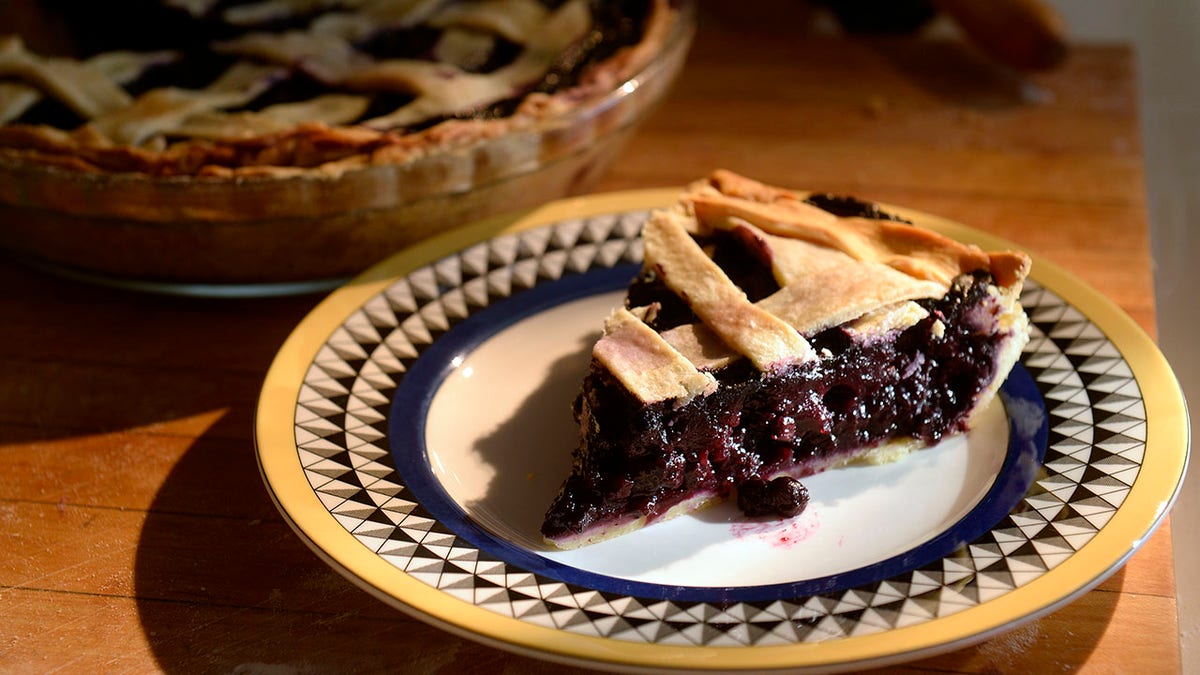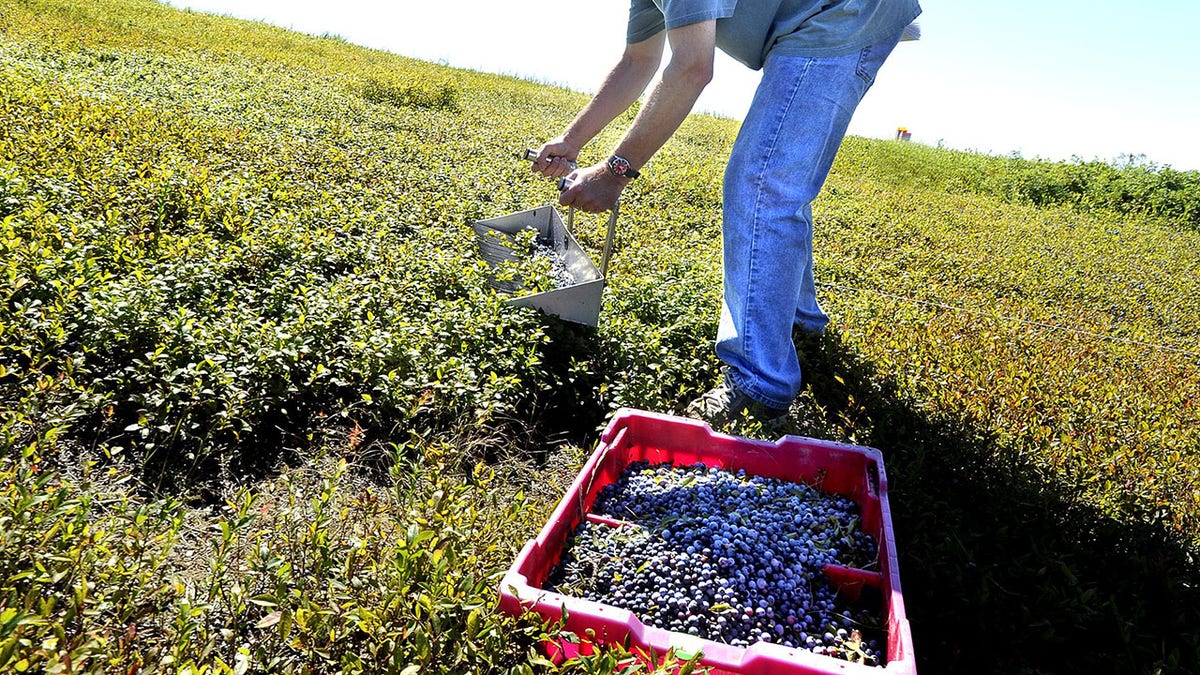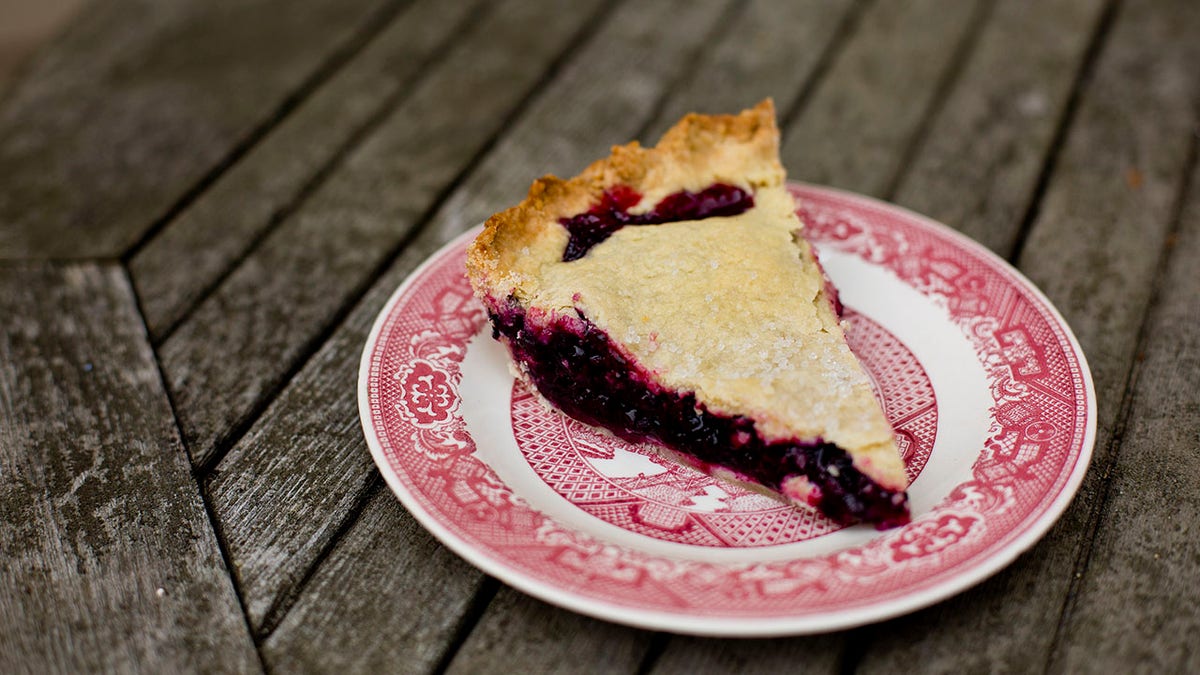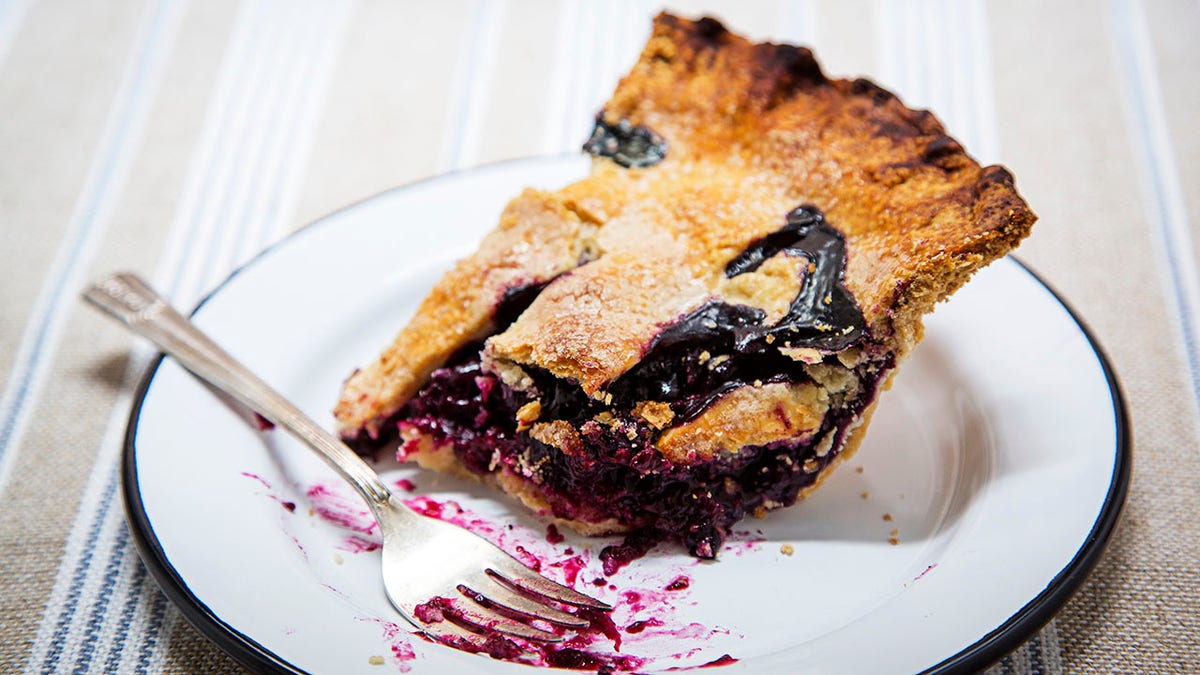Sunday, April 28, is “National Blueberry Pie Day” — helping to kick off pie-making season each year.
Though it’s unclear when this observation began, many find it a good excuse to enjoy a delicious slice of blueberry pie (ice cream on the side optional).
Want some “food for thought” during your celebrations?
THESE ARE THE 8 BEST FRUITS FOR YOUR HEALTH, ACCORDING TO NUTRITIONISTS
Here are five facts about this sweet treat for April 28th and well beyond.
1. Blueberry pie was invented in the 19th century
The first mention of a “blueberry pie” was in 1829, says the New England Historical Society, and it may have been included in an 1850 cookbook, though details are uncertain.

National Blueberry Pie Day is observed each year on April 28. (Denver Post/Cyrus McCrimmon)
The first recorded recipe for a “berry pie” was published in 1872’s “Appledore Cook Book,” says the website for “New England Recipes.”
BREAD KING OF PARIS RISES TO THE TOP IN ANNUAL BAGUETTE CONTEST: ‘A LOT OF LOVE’
The recipe called for “two spoonfuls of sugar,” and noted that the pie recipe would be suitable for any kind of berry, including blueberries.
2. Wild blueberries are native to North America
Wild blueberries are one of few commercial crops that are native to North America.
They’ve been grown for thousands of years, says the University of Maine’s website on wild Maine blueberries.

Blueberries are harvested with a tool known as a rake. (John Patriquin/Portland Press Herald via Getty Images)
The Wabanaki natives planted the first large-scale blueberry fields, said the University of Maine, and introduced the crop to English settlers during the 17th century.
3. Blueberry pie is Maine’s official ‘state dessert’
While 18 states have an official “State Dessert” or “State Pie,” only Maine has chosen to honor the blueberry pie.
SPINACH VS. KALE: WHICH IS ‘BETTER’ FOR YOU? NUTRITIONISTS SETTLE THE GREAT DEBATE
In 2011, state legislators voted to name “blueberry pie, made with wild Maine blueberries” as the “State Dessert,” following a surprisingly intense legislative battle with proponents of another Maine specialty, the whoopie pie.
(In a compromise, the whoopie pie was named the “State Treat.”)

“Blueberry pie, made with wild Maine blueberries,” was named Maine’s “State Dessert” in 2011 after a legislative battle. (Gabe Souza/Portland Press Herald via Getty Images)
Each year, Maine honors blueberry farmers during “Wild Blueberry Weekend,” typically in August during the harvesting season.
APPLES VS. ORANGES: WHICH OF THESE FRUITS IS ‘BETTER’ FOR YOU?
“Last year alone, Maine farmers harvested 77.5 million pounds of wild blueberries,” said Maine Gov. Janet Mills (D) in a 2023 press release.
“And we know that these wild blueberries are healthy, they have more antioxidants than cultivated blueberries, and they are tastier than any other kind of blueberry in the world.”
4. The Civil War helped spread the popularity of blueberries
During the Civil War, many Union Army soldiers were fed blueberries for the very first time.
Until that point, blueberries were largely only eaten by people in New England, where the plants were grown.

Until the Civil War, blueberries were not widely consumed outside of New England. (Scott Suchman/for The Washington Post)
Wild blueberries were shipped down from Maine to the Union soldiers, who developed quite a liking for them and brought them back to ther home states.
After the war, wild blueberry canning businesses developed, making it easier for the newly minted blueberry fans to get the fruit, said the New England Historical Society.
5. Blueberries might help your memory
“With 33% more deep purply blue anthocyanins and 2x the antioxidants of ordinary blueberries, wild blueberries contribute to healthy brains,” said the website for the Wild Blueberry Association of North America (WBANA).
CLICK HERE TO GET THE FOX NEWS APP
Numerous studies have found that the regular consumption of blueberries can help improve cognitive decline in elderly adults, said the WBANA — and evidence has shown that the anthocyanins found in blueberries can slow brain aging.
CLICK HERE TO SIGN UP FOR OUR LIFESTYLE NEWSLETTER
Other studies have shown “significant positive effects on memory, decision-making, response times, concentration and mood” in children after they consume blueberries, said WBANA.
For more Lifestyle articles, visit www.foxnews.com/lifestyle.
